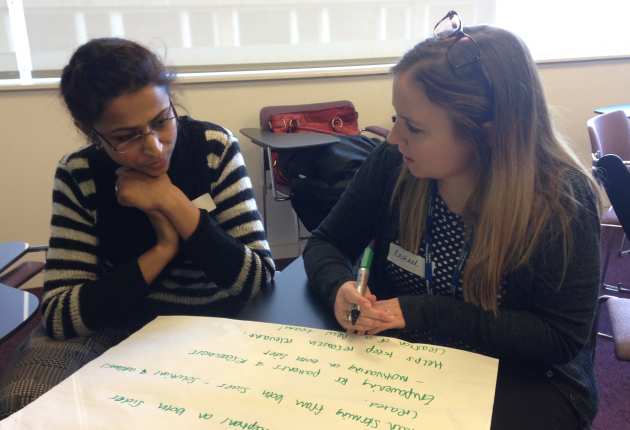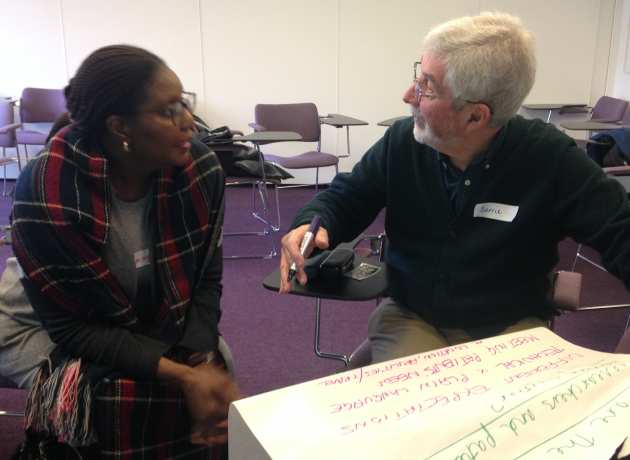Patients and the public can provide valuable insights into many aspects of research but for them to be able to do this effectively it is important to be clear about their roles and responsibilities: PPI R&R guidance (PDF)
 1) IDENTIFYING AND PRIORITISING
1) IDENTIFYING AND PRIORITISING
Patients and the public can help to determine research questions that are relevant to the people affected by a condition / users of the service being researched
2) COMMISSIONING
Patients and the public bring valuable perspective to the process of commissioning research and can be co-applicants on grant applications.
3) DESIGNING AND MANAGING
To ensure research is designed and managed with the patients’ needs a priority, there are a variety of ways patients and the public can provide insights: advising on study designs, reviewing patient information documents, as members on protocol development groups, study advisory groups, trial steering committees and trial management groups.
4) UNDERTAKING
Patients and the public may undertake tasks during the study period such as leading focus groups or gathering and reviewing evidence.
 5) DISSEMINATION
5) DISSEMINATION
It is important that the results of any research are reported effectively to the relevant patient groups. Patients and the public can advise on how results are communicated and to whom.
6) IMPLEMENTATION
Patients and the public can be key in ensuring that the results of research result in changes in practice and / or feed into future research.
7) EVALUATING IMPACT
Evaluating the impact of both research and PPI itself is important for accounting to funders as well as informing future work. Patients and the public are well placed to advise on methods of evaluation as well as being involved in the evaluation process itself.
If you would like further information on how to conduct patient and public involvement activities for your research please contact Marie Miller (m.miller@imperial.ac.uk).
The Collaborations Section is currently being updated.
If your request falls under one of the Therapeutic areas details for the relevant email can be found on the Therapeutic Area Contact Details Page.
For commercial sponsors
Visit our dedicated website for commercial sponsors interested in working with ICTU.